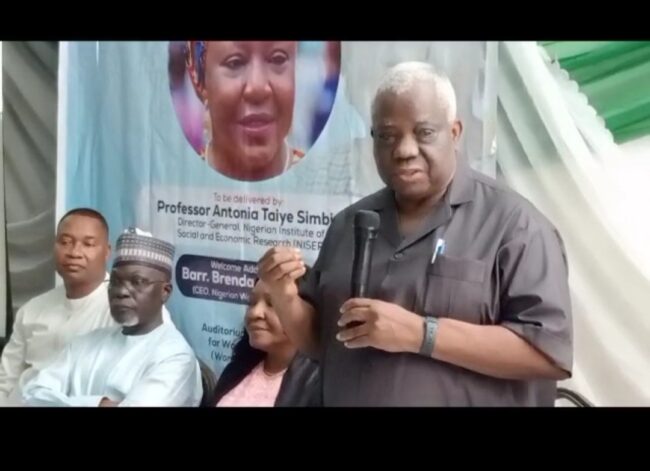The Social Science Academy of Nigeria (SSAN) has called on the 10th National Assembly to prioritise the passage of the Gender and Equal Opportunities Bill, emphasising its importance to Nigeria’s overall progress.
Introduced in 2006 by the Federal Ministry of Women Affairs and Social Development with backing from multiple regional and international organizations, the bill has faced repeated setbacks, the most recent being its rejection by the 9th Senate, citing conflicts with the religious and cultural beliefs of a majority of Nigerians.
Speaking at the 2024 distinguished public lecture hosted by the Academy in Abuja, Prof. Antonia Simbine, Director General of the Nigerian Institute of Social and Economic Research (NISER), highlighted gender inequality as a critical barrier to Nigeria’s advancement. Simbine argued that the underrepresentation of women, who make up almost half of Nigeria’s population, in political, economic, and social arenas has been detrimental to the nation’s development.
She remarked, “Both men and women should be able to engage with the government they elect. The Gender and Equal Opportunities Bill serves as a legislative vehicle to drive the agenda for a more inclusive society. Gender inequality is a major hindrance to our progress, affecting not only democracy but also our socioeconomic growth, which should be the ultimate goal of any democratic system.”
Simbine added that a democracy that fails to improve prosperity and overall well-being is not fulfilling its purpose. She stressed that the bill aligns with the United Nations’ Sustainable Development Goals (SDGs), which prioritize gender equality and women’s empowerment.
Prof. Chike Okolocha, President of SSAN, pointed out that the bill addresses gaps that go beyond what is covered in certain sections of Nigeria’s constitution. Some lawmakers opposing the bill argue that Section 42 of the amended constitution already guarantees equal opportunities, but Okolocha contended that the Gender and Equal Opportunities Bill provides a more comprehensive framework.
“The bill was rejected by the Ninth Senate because it was argued that Section 42 of the constitution already guarantees equal opportunities for all. However, this bill expands on those guarantees,” Okolocha explained.
“With the ongoing constitutional amendments, passing the bill would significantly enhance the status of women in Nigeria.”
He further emphasised the demographic implications, noting, “Nigeria’s population stands at approximately 233 million, with women comprising about 110 million of that number. Ignoring such a significant portion of the population will only hinder national progress.”
According to Okolocha, integrating women into the political and economic mainstream is essential for the country’s long-term development. “The continued marginalisation of almost half of the population is a disservice to the nation. It’s time we bring this substantial segment into the fold of national life,” he concluded.
ALSO READ THESE TOP STORIES FROM NIGERIAN TRIBUNE






